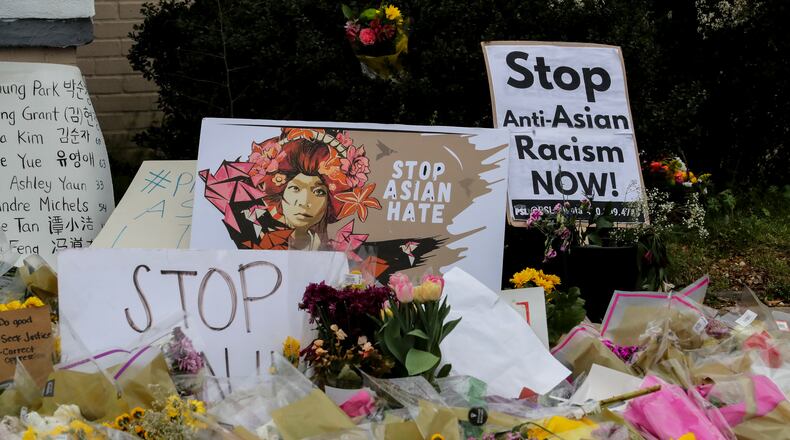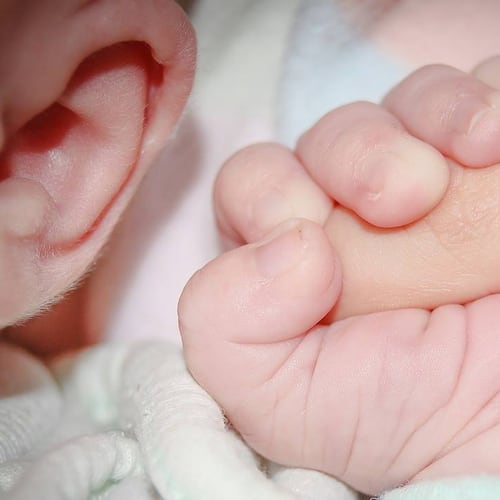March 16, 2021 was a typical Tuesday night until my phone started buzzing. Messages from across the country began to flood in about a gunman attacking Asian spas in the Atlanta area. Eight people died that night; six were Asian women massage workers.
As I struggled to process, my boss issued a directive: We need to organize. We work at Georgia’s largest Asian American civil rights organization, Asian Americans Advancing Justice-Atlanta, and I jumped into action. While writing an organizational statement deep into the night, I began to grasp the depths of pain the shootings would wrought on my community. I chose our words with care for the Georgia I love.
A year later, people are asking what has changed. Not nearly enough.
In the days, weeks and months following the shootings, we wrapped community care around the victims and their families. We secured lawyers to help families navigate immigration and probate matters. We created a victims’ compensation fund. We organized mental health services in the survivors’ languages and cultures. Through this work, we learned that the survivors needed to heal from wounds beyond the terrifying shooting. With unique scars from their shared trauma, survivors have spent the past year grieving, processing and healing from layers of economic, emotional and physical pain.
We also heard rallying calls condemning this tragedy along with so many others that have affected Asian Americans over the past two years.
However what stands out to me is, amidst the calls for tougher punishment against individual actors, the deafening silence about the acts our government perpetuates against our community members every day. The day before the shootings, the Biden administration deported 33 Vietnamese refugees from the United States. And in the days that followed, Gov. Brian Kemp stood below a painting of a plantation to sign a sweeping voter suppression bill that targets Black, Asian American, and Latinx voters.
Credit: contributed
Credit: contributed
A week after I attended a funeral for one of the victims, I filed a lawsuit against Brad Raffensperger, Georgia’s secretary of state, to challenge the new voter suppression law on behalf of impacted Asian American voters.
A year later, we are still struggling with creating safety for our communities.
As the recent murders of Michelle Alyssa Go and Christine Yuna Lee compound the existing fears and anxieties of Asian Americans and other marginalized people, another immigration raid targeting the Cambodian community looms on the horizon. And in state legislatures across the country, including in Georgia, lawmakers are fervently attempting to erase the legacy of racism in the United States through policies that ban honest and accurate accounts of history.
Creating safety for Asian Americans requires us to identify all forms of racist violence – not just physical assaults, but state-sponsored policies and systems that detain and deport immigrants, criminalize sex workers and incarcerate Black and Brown communities. Creating safety for Asian Americans requires a radical reimagining of safety and belonging; investing into systems that center humanity, dignity and care for all people.
To achieve safety and justice, we need a comprehensive approach that includes individual, community and government action. For example, we can act locally to ensure ethnic studies will be taught in our K-12 classrooms to counter state education bills that try to ban books and accurate, comprehensive discussions of race and racism. In addition, Asian American communities must push for state legislation that gives undocumented immigrants basic rights – such as access to a driver’s license – in places like Georgia, Michigan and Minnesota. And system leaders like Georgia’s university system Board of Regents must accept undocumented students to top-tier public universities and grant in-state tuition to all Georgia residents, regardless of immigration status.
In the months after the shootings, we caught a glimpse of what is possible when we come together and collectively invest in community care. Atlanta’s Asian American community and other community leaders came together to raise money for immediate and longer term basic needs, assisted in relocation for some survivors, and continued to offer in-language mental health support that people actually need. Imagine what can happen if we can change entire systems to do the same.
Phi Nguyen is the executive director of Asian Americans Advancing Justice-Atlanta. She was the litigation director for the same organization when the Atlanta spa shooting occurred on March 16, 2021.
About the Author
Keep Reading
The Latest
Featured



